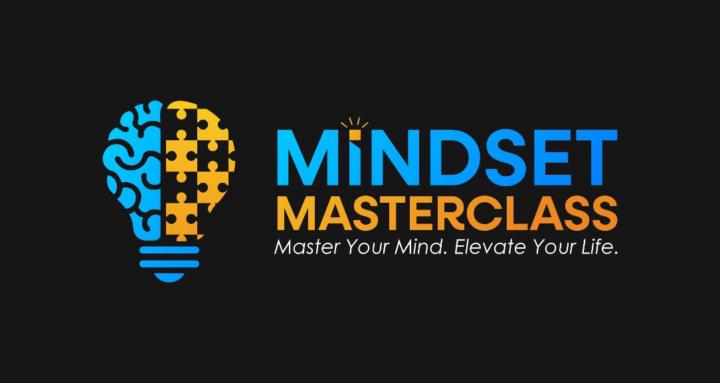Feb 6 • Mindset Mastery
ADHD: Sexy Special Label or Stuck in a Loop?
Why Your ‘Attention Problem’ Isn’t a Problem—It’s a Misunderstood Strength
Grab the Video Article here: https://youtu.be/--8ERRgvtI8
After 30+ years in private practice—owning and operating multiple clinics, training and consulting across the U.S., and working with thousands of patients—I’ve watched ADHD label-mania skyrocket.
Apparently, EVERYONE has it.
And if everyone has it, that just makes it…normal.
And if it’s normal, then NO ONE actually “has” it—because what’s been mislabeled as a deficiency is just normal human experience.
Such social media-driven “sexy special” diagnoses (e.g., autism, bipolar, borderline) are often self-assigned or handed out by teachers, family members, or even the friendly neighborhood plumber—based on a simple checklist, with no structured assessment, no differential diagnosis, and no clinical license to do so.
Social Media Psychology
I’ve recently seen a lot of social media posts claiming problems with attention means frontal lobe, basal ganglia, or cerebellar dysfunction. This is a BIG misunderstanding of how the brain manages attention.
Assuming that less-than-preferred attention means actual physiological brain impairment is a logical fallacy. This is ‘Begging the Question’—assuming a neurological deficit by cherry-picking anecdotal experiences.
If these brain regions were truly impaired, you’d need fMRI, PET, or qEEG to verify—not guesswork and checklists.
Imagine diagnosing atherosclerosis in a burger joint—based on observation alone. Too often, we pathologize normal variability in focus instead of understanding it.
For those with ‘attention deficits,’ there sure is an impressive amount of herculean hyperfocus on ADHD.
Inattention isn’t a bug.
During my neuropsychology residency, my supervisor, Dr. Elkhonon Goldberg, often spoke about how the brain isn’t built for relentless attention but for meaning-based selective inattention—we don’t just ignore distractions; we focus on what we’ve programmed our subconscious to value most.
We FIRST engineer our thoughts, and THEN—outside of our conscious awareness—our thoughts engineer our lives.
• Homework vs. TV? If we’ve reinforced entertainment as more valuable, TV wins.
• Conversation vs. a sound outside? If we’ve conditioned ourselves to prioritize novelty, the mind shifts.
• Routine vs. curiosity? If we’ve trained our focus to chase what’s new, attention recalibrates automatically.
Inattention is a design feature.
This isn’t dysfunction—it’s self-directed programming in action. Without the ability to reduce attention, the brain would drown in information, eliminating any chance of intelligent decision-making. Inattention isn’t a lack of focus—it’s your brain deciding to reduce attention on things you've assigned LESS VALUE. It's your brain doing exactly what you've trained it to do.
If we want to increase our ATTENTION to a thing, we must FIRST examine what value we are placing on the other things that DISTRACT us from it.
Belief Powers Reality
Convince yourself you have a deficit, and your brain will act like you do. This is the Rosenthal Effect—expectations shape outcomes.
Labels shape reality, turning challenges into cages.
The mind is a powerful architect. Believe you have a deficit, and your brain will reshape itself to fit that belief. Expectations don’t just predict outcomes, they create them. Labels don’t just describe reality; they define it. Call yourself broken, and your brain will oblige. But remove the label, and suddenly, what looked like a weakness might just be an untapped strength.
Don’t Label. Do This Instead.
Your inattention isn’t a disorder—it’s a tool. The issue isn’t that you have something; it’s that you’ve been trained to see it as a problem.
Time to undo that.
🛑 De-Label Yourself – Stop calling it a disorder. You don’t have inattention—you use it. Labeling yourself as deficient only trains your brain to play along.
🔄 De-Catastrophize It – Being easily distracted isn’t a crisis, failure, or dysfunction. It just means your brain is prioritizing something else. Train it to prioritize what truly matters by practicing mindful attention shifts. Keep engaging in the Mindset Masterclass community for strategic mindfulness tips.
🚫 De-Pathologize Normal Focus Variability – Attention naturally ebbs and flows. Some moments you’re locked in, others you’re not. That’s not a disorder—it’s how human cognition works.
🔍 De-Mystify Your Distractions – Your brain isn’t randomly tuning out—it’s following a programmed value system. If distractions keep winning, it’s because your subconscious ranks them higher in importance than the task at hand. Be intentional about what you assign value to.
🎯 De-Rail Distraction Loops – If you keep getting sucked into the same distractions, interrupt the cycle. Change your environment, remove digital temptations, or stack rewards to make focus more rewarding than distraction.
💡 De-Weaponize the Diagnosis – The ADHD label isn’t a life sentence. Stop using it as a reason why you “can’t” focus. Instead, use it as a roadmap to train your brain intentionally.
🚀 Your brain isn’t broken—it’s just following the path you’ve set for it. Stop labeling. Start leading.
Coding Your Brain for Failure OR Success
if(youBelieve = “deficit”) { brain.execute(“underperform”); } else { brain.execute(“adapt & thrive”); }
Thanks for reading my Shoe🥾Leather Psychology article! Share it with someone who could use a mindset boost🚀
Your Mind Creates Your Reality—Are You in Control?
If distractions keep winning, it’s because your subconscious is programmed to prioritize them. Mindset Masterclass is here to help you rewire that programming—so the balancing act of inattentive moments and intermittent focus works in your favor.
Share your own tips and questions in the chat. I look forward to hearing from you.
8
50 comments

skool.com/mindset
Unlock cognitive potential and elevate your life. Join us at the peak of life mastery learning psychological secrets of mindset and success.
Powered by





